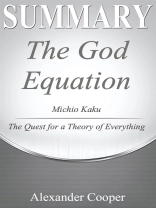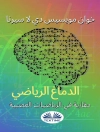Summary of The God Equation
Chapter 1: The same year Galileo Galilei died a broken man in his prison cell, another legend was born in London. For Kaku, Isaac Newton is the greatest scientist who has ever lived, and the modern dream of a unified theory began with him. At a time when the church had taught only two laws–on Earth and in the heavens–Newton’s idea proposed a unification that encompassed both. The results of his experiments allowed him to conclude that terrestrial and heavenly physics work the same, opening the world’s eyes to the concept of forces. Another remarkable characteristic of Newton’s laws was its symmetry. An equation is said to be symmetric when it stays invariant even after its parts are rearranged. Newton’s laws allowed for science to advance at unimaginable levels, and his masterpiece, Principia, is considered one of the field’s greatest scriptures.
Decades after Newton came Michael Faraday and James Clerk Maxwell, who unified the concepts of electricity and magnetism, laying the foundations of electromagnetism. Faraday discovered the existence of magnetic fields, which, since then, have been used to express all known forces in the universe. His work laid the foundation for Maxwell’s equations who made astonishing developments in physics. In 1886, Heinrich Hertz achieved a scientific milestone using Maxwell’s equations and …
To be continued…
Here is a Preview of What You Will Get:
⁃ A Full Book Summary
⁃ An Analysis
⁃ Fun quizzes
⁃ Quiz Answers
⁃ Etc
Get a copy of this summary and learn about the book.
Alexander Cooper
Summary of The God Equation [EPUB ebook]
by Michio Kaku – The Quest for a Theory of Everything – A Comprehensive Summary
Summary of The God Equation [EPUB ebook]
by Michio Kaku – The Quest for a Theory of Everything – A Comprehensive Summary
Beli ebook ini dan dapatkan 1 lagi GRATIS!
Bahasa Inggris ● Format EPUB ● ISBN 9791220814447 ● Ukuran file 0.8 MB ● Penerbit Ben Business Group LLC ● Diterbitkan 2021 ● Diunduh 24 bulan ● Mata uang EUR ● ID 7868928 ● Perlindungan salinan tanpa












